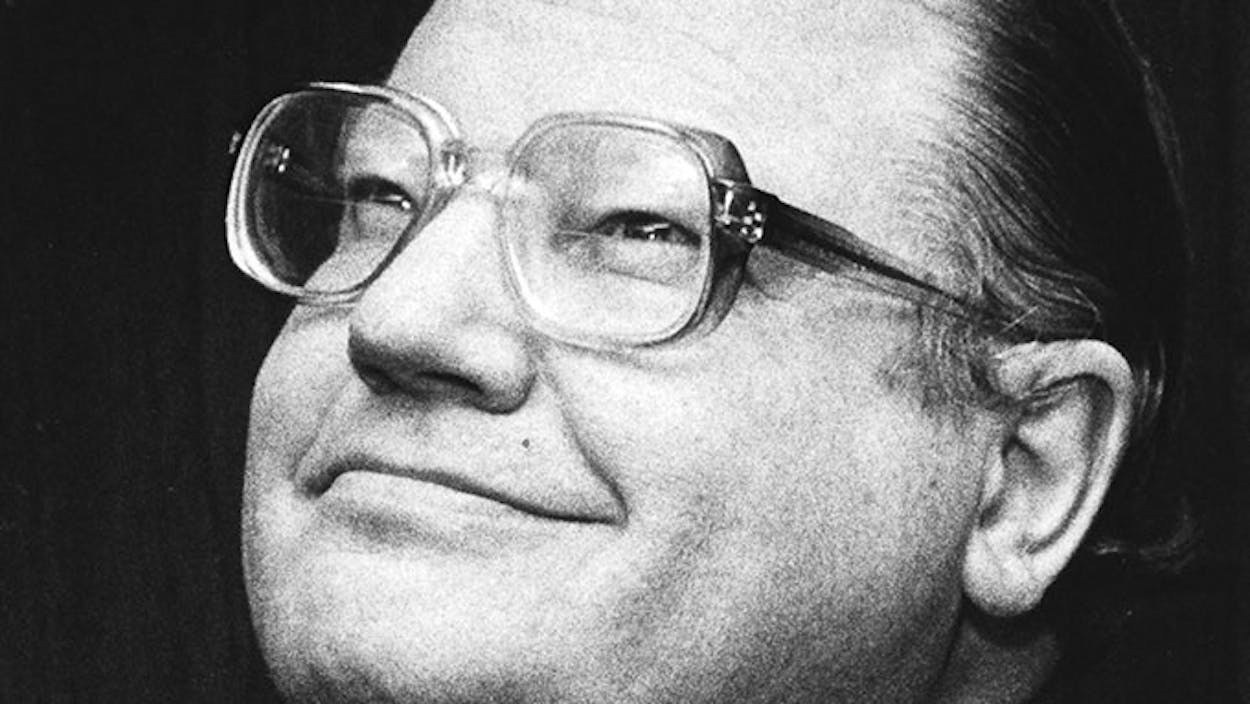During a lull in the conversation at the Dallas Petroleum Club, my lunch companion looked past me and nodded toward the corner of the room. “That’s Bunker and Herbert Hunt over there,” he said. “What sort of deals do you suppose they’re working on?” It was the early nineties and one of the first times I’d dined in the elite lunchroom of Dallas’s oil-igarchy. Though their fortunes had faded and they had retreated from the limelight, Nelson Bunker Hunt and his brother Herbert remained the local equivalent of royalty—deposed royalty, perhaps, but royalty nonetheless. Few in the room would have turned down the chance to trade places with either of them.
Bunker (no one called him Nelson), who died October 21 at the age of 88, was born into oil-patch legend, part of a tale so grandiose it could be lived only in Texas. His father, H. L. Hunt, was a wildcatter and bigamist who parlayed an interest in gambling halls into an even bigger stake in the prolific East Texas field. The second son of H.L.’s “first” family, Bunker was in many ways a chip off the old block, making millions of his own in the oil game. But for him, great wealth seemed to involve great fear—fear that his millions would be stolen from him. Muammar al-Qaddafi appropriated his oil fields in Libya, and he became convinced that if the IRS didn’t take the rest of his fortune, the rampaging inflation of the seventies would.
As a hedge against rising prices, he, Herbert, and a third brother, Lamar (the founding owner of the Kansas City Chiefs) began buying enough silver to reshape the market for the stuff. It was an extravagant undertaking—at one point they chartered three 707’s to fly their hoard to Switzerland—and it ended up being a calamitously bad bet. Bunker and Herbert were forced into the ultra-rich’s version of penury; they filed two of the biggest personal bankruptcies in history, but Bunker was still worth an estimated $200 million.
By the time I joined the Dallas Times Herald as a business reporter in 1990, the collapse of the Hunts’ fortune and the oil bust of the eighties had served as a referendum on the free-spending excesses that had defined Dallas. Even amid our unprecedented fracking boom, today’s oilmen are more cautious, more reserved—as likely to be trained in accounting as geology. The state has moved beyond the stereotypes of ostentatious wealth that Bunker and his brothers helped create.
Perhaps that’s why Bunker’s death garnered so little notice beyond the front page of the Dallas Morning News. If the comments appended to his online obituary in the Morning News are any indication, few people are familiar with his legend. Some mentioned his role in creating the Bronco Bowl, perhaps the least impressive thing he ever did with his money. In the Houston Chronicle, the paper of record in the Energy Capital of the World, his death rated little more than a 275-word brief on page B2.
Even twenty years ago, when Bunker had already fallen from grace, this would have been inconceivable. A man who owned millions of acres of Australian ranch land, more than one thousand racehorses, and a world-class collection of ancient coins—a man who was one of our last connections to Texas’s swaggering saga of oil wealth—has been all but written out of our collective history.








